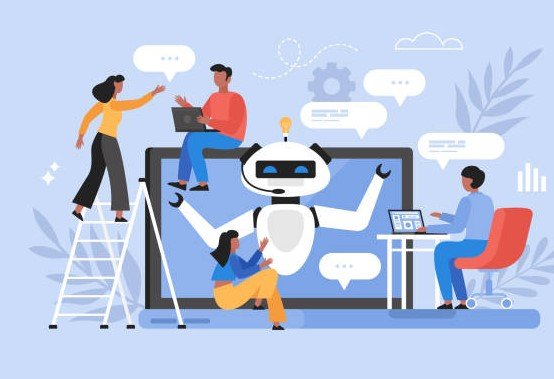AI agents are set to revolutionize how companies operate, with experts predicting massive growth and widespread adoption by 2025. These smart systems go beyond basic automation to make decisions and take actions, impacting everything from marketing to supply chains worldwide.
What Are AI Agents?
AI agents represent the next step in artificial intelligence, designed to act on their own without constant human input. Unlike older AI that just analyzes data or creates content, these agents can plan, reason, and execute tasks in real time.
They use advanced models to understand goals, access tools like databases or apps, and adapt to new situations. For instance, an agent might handle customer inquiries by pulling data from multiple sources and responding instantly. This shift allows businesses to scale operations faster than ever.
Experts say agents will become common in daily workflows, turning complex processes into simple commands. As technology improves, their ability to learn from past actions makes them even more powerful.

Key Trends Shaping AI Agents in 2025
Business leaders point to several trends driving AI agent adoption this year. Rapid advancements in cloud computing and machine learning fuel their growth, with projections showing the market expanding quickly.
One major trend is the rise of agentic AI in sales and customer service, where agents automate interactions and boost efficiency. Another involves multi-agent systems that work together on big projects, like optimizing supply chains.
Here are some top trends based on recent reports:
- Autonomous decision-making: Agents handle tasks like inventory management without oversight.
- Integration with existing tools: Easy connections to CRM systems and databases speed up deployment.
- Focus on ethics and security: Companies prioritize safe AI to avoid risks like data breaches.
- Personalization at scale: Agents tailor experiences for customers, improving loyalty and sales.
These trends align with broader tech shifts, making 2025 a pivotal year for innovation.
Forecasts indicate the global AI agent market will hit around 5.32 billion dollars this year, growing to over 42 billion by 2030. North America leads with a strong share, driven by tech hubs and investments.
How AI Agents Impact Business Operations
AI agents change daily operations by taking over repetitive and complex tasks. In marketing, they run entire campaigns, from creating ads to analyzing results and adjusting strategies on the fly.
Supply chain management sees big gains too, with agents predicting disruptions and rerouting shipments automatically. This reduces costs and minimizes delays in global trade.
Finance teams use agents for fraud detection and market forecasting, spotting patterns humans might miss. Retail businesses deploy them for personalized shopping experiences, increasing customer satisfaction.
One study shows companies using agents report up to 40 percent productivity boosts in key areas. This efficiency lets workers focus on creative and strategic roles.
However, integration requires careful planning to avoid workflow disruptions. Successful adopters start small, testing agents in one department before expanding.
Real-World Examples and Use Cases
Across industries, AI agents already deliver results. In healthcare, they manage patient scheduling and data analysis, freeing staff for direct care.
Tech firms like those in sales automation use agents to optimize leads and close deals faster. Education sees agents as virtual tutors, adapting lessons to student needs.
| Industry | AI Agent Use Case | Expected Impact by 2025 |
|---|---|---|
| Marketing | Running targeted campaigns | 30% increase in engagement |
| Supply Chain | Predictive inventory control | 25% reduction in costs |
| Finance | Real-time fraud detection | 40% faster response times |
| Retail | Personalized recommendations | 20% sales growth |
| Healthcare | Automated scheduling | Improved patient outcomes |
These examples show agents driving measurable gains. A recent case in e-commerce involved an agent boosting online sales by handling customer chats 24/7.
Governments explore agents for public services, like traffic management, highlighting their broad potential.
Challenges and Risks to Consider
While promising, AI agents bring challenges. Data privacy concerns top the list, as agents handle sensitive information and could lead to breaches if not secured.
Reliability is another issue; agents might make errors in complex scenarios without enough context. Businesses must invest in training and oversight to mitigate this.
Ethical questions arise too, such as job displacement and biased decisions. Leaders call for guidelines to ensure fair use.
Cost can be a barrier for smaller firms, though falling tech prices help. Addressing these risks early positions companies for long-term success.
Recent events, like new regulations in Europe, push for transparent AI practices, influencing global standards.
Preparing Your Business for AI Agents
To thrive, businesses should assess current systems and identify areas for agent integration. Start with pilot programs in high-impact zones like customer support.
Training staff on AI tools ensures smooth adoption and maximizes benefits. Partnering with tech providers can speed up implementation.
Looking ahead, agile companies that embrace agents will gain a competitive edge. This technology unlocks new models, like on-demand services powered entirely by AI.
Share your thoughts on how AI agents might change your industry. What steps are you taking to prepare? Comment below and spread the word to spark discussion.







